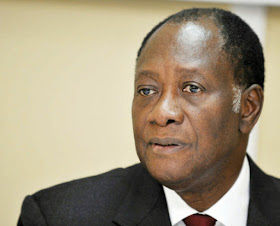RegionsWatch was set up in February 2004 to "monitor work of regional organisations; raise awareness of other regionalisms; provide constructive & progressive critiques of global regional integration initiatives". This blog will seek to continue the work that was being done in RegionsWatch's Observatory **Access this page by typing *http://critiquing-regionalism.org* **
Thursday, January 06, 2011
On Why Military Intervention in Ivory Coast by Ecowas Standby Force is Feasible et al...
Am heartened by the fact that there's a lot of interesting discussion around Ivory Coast, but I want to make a few points:
1. Nigeria -- those associating military intervention with a whim of Nigeria are woefully wrong. Goodluck is only toeing the ECOWAS line. The ECOWAS Framework for Conflict Prevention (available from ECOWAS, 2008) states that military intervention is the last resort "in the broader framework of peace and security architecture: )--p.15. Jonathan just happens to be chairing ECOWAS at the time of the crisis. It could have been any of the other 14 members proposing it as a last resort.
2. ECOWAS ability to intervene -- ECOWAS set a precedent of military intervention back in 1989 when it went into Liberia. The force was called ECOMOG, and 70% of it was indeed Nigerian. They went in with the mandate of peace enforcement. There were problems, but it was not an illegal intervention. Chapter VII of the Security Council enjoins regional organisations to utilise regional organisations "in the maintenance of international peace and security for which the Security Council is primarily responsible" (http://www.un.org/en/sc/repertoire/regional_arrangements.shtml)
3. ECOMOG vs Ecowas Standby Force -- ECOWAS has had missions in Liberia (ECOMOG); Cote d'Ivoire(2002); Sierra Leone; Guinea-Bissau. These had different monikers and were not all known as ECOMOG. In 2010, the African Standby Force (ASF) was born, under which the ECOWAS Standby Force(ESF) is a regional node, a kind of rapid reaction force. Each African region has one (there are five in total). This is what would likely intervene to depose Gbagbo. They trained in October 2010, and have the experience to avoid maximum bloodshed.
4. Human rights abuses -- there are many being perpetrated by pro-Gbagbo supporters, including attacks of UN forces whose sole mandate is to protect Golf Hotel and Outtara. What's the justification in attacking UN forces? ECOWAS has a Community Court, which will have full competence to accept cases of abuses of human rights when all this is over.
This is far from an exhaustive list of points, but for observers of international relations, this escalating crisis is one to keep one's eye on for the actors (a more activist UN; a secondary regional economic community in UEMOA setting a precedent by freezing funds of a member state; the lackadaisical performance of the AU--as exemplified by the choice of Raila Odinga as an AU Envoy, etc)
A more detailed analysis will be delivered in due course!

No comments:
Post a Comment